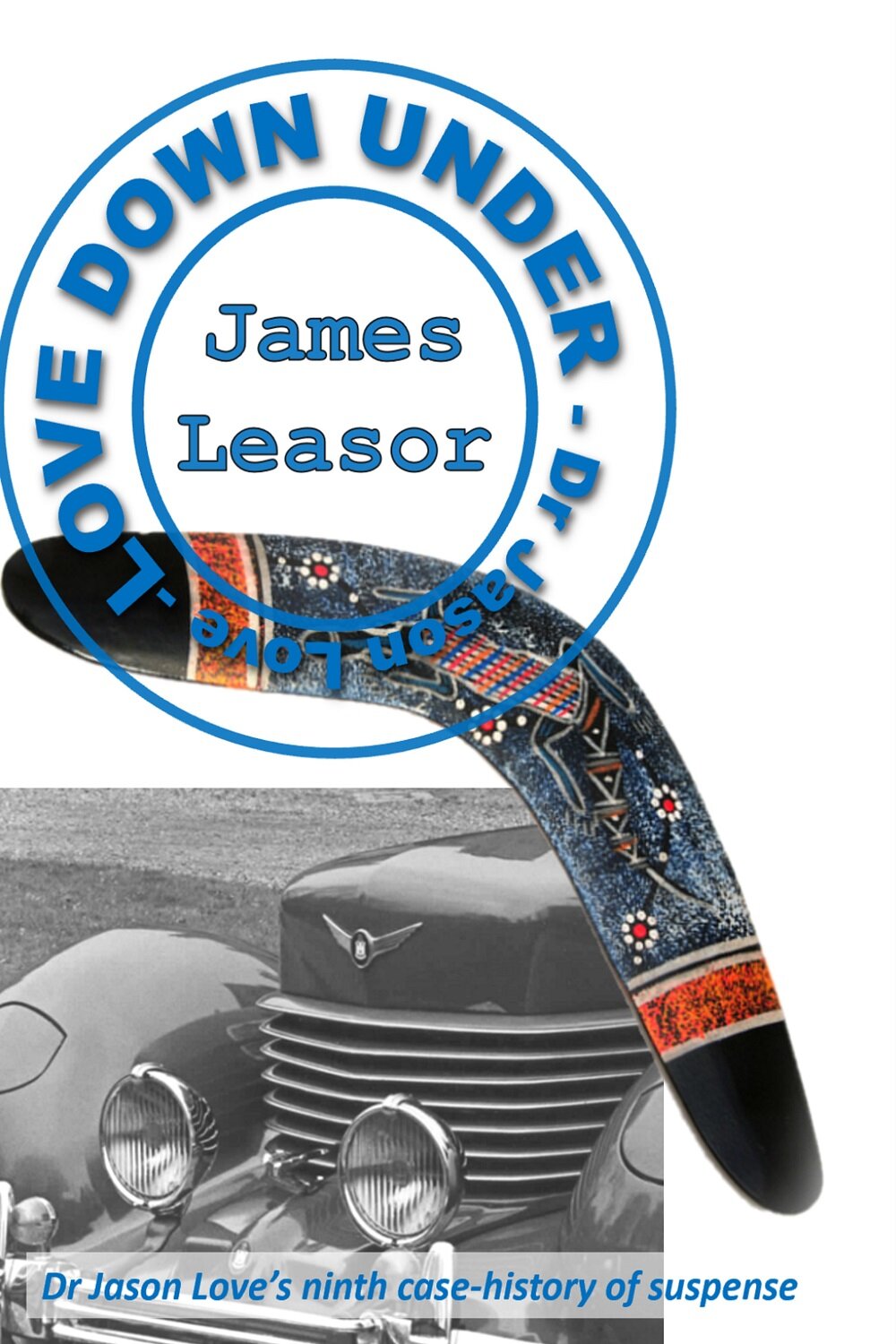NTR: Nothing to Report by James Leasor
"Superbly authentic atmosphere, taut narration. Mr Leasor would have delighted Kipling." The Observer
"The most clinically accurate description of India and Burma about the time of the Kohima breakthrough I have yet seen." Daily Telegraph
"Mr. Leasor brings to 'Nothing to Report' a journalist's straightforwardness, and an on-the-spot sureness about how frightened men behave, that are both refreshing and effective." Spectator
In the early spring of 1944, when the British fortunes of war in the East were low, the Japanese invaded India. From General Headquarters, the word went out that the invasion must be stayed whatever the cost and thus it was that the men of draft RAKXK were sent to one of the unknown, unheard of places in India to defend one of the smaller sectors of the front. NTR is their story and tells of their battles, their loves, their deaths. For they travelled halfway round the world, they endured dangers by land, sea and air, and then, in the end, what was the message they sent back? NTR – Nothing to Report. The reason behind this, illustrating all the irony of war and its consequences, is related in James Leasor’s semi-autobiographical, moving and realistic novel.
“…Before a battle, everyone comports himself in a different way, and one that is curiously symbolic of the man himself. There are those who lay out their kit neatly by the side of their bed roll, and then calmly, so it seems, unroll their mosquito nets and lie down, ready and willing for sleep, no more concerned, at least to the looker-on, than if they were off on a week’s holiday next day. There are others who lie, nets up, surrounded by busy mosquitoes, talking with friends in low tones, trying to peer through the dimness of the night and see the future and the day beyond. Still others smoke nervously and constantly, jamming their cigarettes through the hole in the concealing tobacco tin, lonely, yet drawn in on themselves like snails with their feelers beneath their shells.
All waiting. All passing the time in the only way they know that would make it seem to go quickly. But for all of them, the time drags slowly, and there is no way of making it hurry. Some lucky ones actually fall asleep unexpectedly, and he on their backs, fully dressed, snoring. But even for them, two o’clock eventually comes; for some too soon, and for others far too late…”
“…When the dust had cleared there was no-one left among them to grumble at all, not even Mr Brown. Ten men accounted for in an instant by one shell that had been made months before in a munition sweat shop outside Yoshida City by bare-foot, hungry workers; that had been carried a thousand miles in a ship with some hundreds of British civilians who were being transferred to Changi Jail from Hongkong, and then up through Malaya to Bangkok and Rangoon; and then brought lashed on the backs of mules, six shells a side, to Nyaunglebyin, where a gun crew of unknown Japanese lubricated it with urine and slapped it in the breach….”
“…Men who had come from opposite sides of the world to meet so fiercely thus in a place none had heard of a month before. Men who did not hate each other because they did not know each other, but who were intent on killing quickly if they could, for otherwise they might be killed themselves…”
NTR is based on James Leasor’s own wartime experiences in Burma, where he served with 1st Bn The Lincolnshire Regiment
"Superbly authentic atmosphere, taut narration. Mr Leasor would have delighted Kipling." The Observer
"The most clinically accurate description of India and Burma about the time of the Kohima breakthrough I have yet seen." Daily Telegraph
"Mr. Leasor brings to 'Nothing to Report' a journalist's straightforwardness, and an on-the-spot sureness about how frightened men behave, that are both refreshing and effective." Spectator
In the early spring of 1944, when the British fortunes of war in the East were low, the Japanese invaded India. From General Headquarters, the word went out that the invasion must be stayed whatever the cost and thus it was that the men of draft RAKXK were sent to one of the unknown, unheard of places in India to defend one of the smaller sectors of the front. NTR is their story and tells of their battles, their loves, their deaths. For they travelled halfway round the world, they endured dangers by land, sea and air, and then, in the end, what was the message they sent back? NTR – Nothing to Report. The reason behind this, illustrating all the irony of war and its consequences, is related in James Leasor’s semi-autobiographical, moving and realistic novel.
“…Before a battle, everyone comports himself in a different way, and one that is curiously symbolic of the man himself. There are those who lay out their kit neatly by the side of their bed roll, and then calmly, so it seems, unroll their mosquito nets and lie down, ready and willing for sleep, no more concerned, at least to the looker-on, than if they were off on a week’s holiday next day. There are others who lie, nets up, surrounded by busy mosquitoes, talking with friends in low tones, trying to peer through the dimness of the night and see the future and the day beyond. Still others smoke nervously and constantly, jamming their cigarettes through the hole in the concealing tobacco tin, lonely, yet drawn in on themselves like snails with their feelers beneath their shells.
All waiting. All passing the time in the only way they know that would make it seem to go quickly. But for all of them, the time drags slowly, and there is no way of making it hurry. Some lucky ones actually fall asleep unexpectedly, and he on their backs, fully dressed, snoring. But even for them, two o’clock eventually comes; for some too soon, and for others far too late…”
“…When the dust had cleared there was no-one left among them to grumble at all, not even Mr Brown. Ten men accounted for in an instant by one shell that had been made months before in a munition sweat shop outside Yoshida City by bare-foot, hungry workers; that had been carried a thousand miles in a ship with some hundreds of British civilians who were being transferred to Changi Jail from Hongkong, and then up through Malaya to Bangkok and Rangoon; and then brought lashed on the backs of mules, six shells a side, to Nyaunglebyin, where a gun crew of unknown Japanese lubricated it with urine and slapped it in the breach….”
“…Men who had come from opposite sides of the world to meet so fiercely thus in a place none had heard of a month before. Men who did not hate each other because they did not know each other, but who were intent on killing quickly if they could, for otherwise they might be killed themselves…”
NTR is based on James Leasor’s own wartime experiences in Burma, where he served with 1st Bn The Lincolnshire Regiment
"Superbly authentic atmosphere, taut narration. Mr Leasor would have delighted Kipling." The Observer
"The most clinically accurate description of India and Burma about the time of the Kohima breakthrough I have yet seen." Daily Telegraph
"Mr. Leasor brings to 'Nothing to Report' a journalist's straightforwardness, and an on-the-spot sureness about how frightened men behave, that are both refreshing and effective." Spectator
In the early spring of 1944, when the British fortunes of war in the East were low, the Japanese invaded India. From General Headquarters, the word went out that the invasion must be stayed whatever the cost and thus it was that the men of draft RAKXK were sent to one of the unknown, unheard of places in India to defend one of the smaller sectors of the front. NTR is their story and tells of their battles, their loves, their deaths. For they travelled halfway round the world, they endured dangers by land, sea and air, and then, in the end, what was the message they sent back? NTR – Nothing to Report. The reason behind this, illustrating all the irony of war and its consequences, is related in James Leasor’s semi-autobiographical, moving and realistic novel.
“…Before a battle, everyone comports himself in a different way, and one that is curiously symbolic of the man himself. There are those who lay out their kit neatly by the side of their bed roll, and then calmly, so it seems, unroll their mosquito nets and lie down, ready and willing for sleep, no more concerned, at least to the looker-on, than if they were off on a week’s holiday next day. There are others who lie, nets up, surrounded by busy mosquitoes, talking with friends in low tones, trying to peer through the dimness of the night and see the future and the day beyond. Still others smoke nervously and constantly, jamming their cigarettes through the hole in the concealing tobacco tin, lonely, yet drawn in on themselves like snails with their feelers beneath their shells.
All waiting. All passing the time in the only way they know that would make it seem to go quickly. But for all of them, the time drags slowly, and there is no way of making it hurry. Some lucky ones actually fall asleep unexpectedly, and he on their backs, fully dressed, snoring. But even for them, two o’clock eventually comes; for some too soon, and for others far too late…”
“…When the dust had cleared there was no-one left among them to grumble at all, not even Mr Brown. Ten men accounted for in an instant by one shell that had been made months before in a munition sweat shop outside Yoshida City by bare-foot, hungry workers; that had been carried a thousand miles in a ship with some hundreds of British civilians who were being transferred to Changi Jail from Hongkong, and then up through Malaya to Bangkok and Rangoon; and then brought lashed on the backs of mules, six shells a side, to Nyaunglebyin, where a gun crew of unknown Japanese lubricated it with urine and slapped it in the breach….”
“…Men who had come from opposite sides of the world to meet so fiercely thus in a place none had heard of a month before. Men who did not hate each other because they did not know each other, but who were intent on killing quickly if they could, for otherwise they might be killed themselves…”
NTR is based on James Leasor’s own wartime experiences in Burma, where he served with 1st Bn The Lincolnshire Regiment






